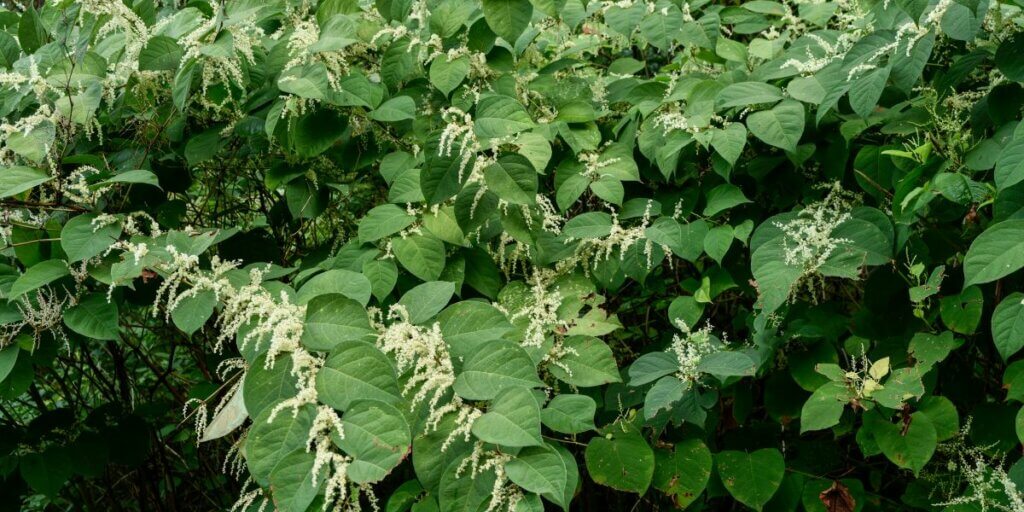Japanese Knotweed Disputes
The issues caused by Japanese knotweed for homeowners in this country are now well established. The knotweed can spread both outside the boundaries of a property and underneath it. If owners of neighbouring land or gardens fail to prevent the spread of Japanese knotweed outside of their property boundaries then you may wish to bring a claim for damages.
It is not illegal to have Japanese knotweed in your garden or on your land. You do, however, need to keep it under control so it does not cause any problems for your neighbours.
If you think your neighbour has the knotweed on their land or in their garden, you should notify/discuss with them. They may not be aware of the plant species and then you can discuss your concerns.
If they fail to take necessary steps to prevent it spreading into your garden then, speaking to a solicitor will help to confirm next steps. Call our property dispute experts on 0330 822 3451 or send us an enquiry.
What is Japanese knotweed?
Knotweed is an invasive non-native plant with an incredibly strong root system. The species was introduced into Britain in the 19th century as an ornamental plant.
It can grow to 3-4 metres in just over a couple of months and its rhizomes can spread horizontally underground by as much as 7 metres.
That rapid growth and horizontal and vertical spread can compromise the structure of buildings.
 Photo: Japanese Knotweed
Photo: Japanese Knotweed
Where can Japanese knotweed be found?
Japanese knotweed is designated an invasive plant by the UK government which means that the improper disposal or transporting of the plant is a criminal offence.
This designation has not, however stopped the spread of the plant which can be found in most cities in England and Wales.
Environet have a heatmap to see whether a property is in a high risk area.
Is Japanese knotweed poisonous?
No, it is not poisonous or harmful to touch. Despite causing damage to property it is not harmful to humans although some report it can cause mild skin irritation
Is Japanese knotweed dangerous?
It is not dangerous to humans or animals but it is a dangerous plant when growing near buildings as it can cause structural damage. It has a relentless growth rate and so can harm masonry, property foundations and flood defences.
Will Japanese knotweed devalue my property?
Many mortgage lenders may refuse to give a mortgage offer on a property of it has been affected by Japanese knotweed. Others will only lend if the plant is removed or treated which can cost thousands of pounds. It is so important that any removal of the knotweed is handled quickly in order to prevent further spreading of the plant and damage. The Royal Institute of Chartered Surveyors has provide guidance in 2022 on Japanese Knotweed and Residential Property.
In the recent case of Davies v Bridgend County Borough Council (2023) a homeowner was able to claim for the residual diminution in value to his property even after the problem had been treated by the neighbour landowners.
What are landowners obligations?
Landowners must stop Japanese knotweed on their land from spreading and when identified its containment and removal places liability and financial burdens. There are statutory duties on containment and removal and, in addition, landowners can also have private liability to their neighbours if the knotweed escapes and spreads onto other land.
Currently, there are no legal requirements to report the presence of Japanese knotweed. When it is identified, however, reporting to the local authority and specialists as soon as possible is recommended.
"...Chun Wong has been dealing with a personal, property case for me and her service has been exemplary. Chun has dealt with my difficult circumstances with unfailing professionalism, honesty, integrity and compassion..."
What should I beware of when buying or selling a property with Japanese knotweed?
When selling a property, you will be required to complete the Property Information Form. This is a legal document to provide the potential buyer with important information about the property.
The form requires the seller to confirm whether the property is affected by Japanese knotweed. If the property is affected by Japanese Knotweed the buyer may require confirmation that a management/treatment plan is in place and guarantees/certificates be provided.
If you knowingly or recklessly answer ‘no’ to this question, you could be sued for misrepresentation as occurred in Downing v Henderson (2023)
If a buyer has concerns and the seller answers ‘not known’ on the Property Information Form, they can obtain a survey of the premises and/or take out a knotweed indemnity insurance cover to gain cover for remediation costs should knotweed be discovered, post completion.
What can you do if you have knotweed on your property?
The government requires you to stop the Japanese knotweed on your land from spreading off your property. When soil or other plant materials are contaminated they can cause ecological damage and may be classifies as controlled waste
"Would highly recommend this law firm service was second to none."
How can our Hodge Jones & Allen lawyers assist with a Japanese knotweed claim?
Chun Wong and her team of Dispute Resolution legal specialists can assist clients whose properties have been affected by Japanese knotweed. They will guide you through the process of getting treatment of the plant and also help to secure compensation for consequential damage. The team work closely with specialist experts who can treat knotweed and act as expert witnesses in your case.
Contact the team for a confidential chat regarding your situation and to discuss the compensation you may be entitled to. Our expert team will clearly explain your legal rights and help you handle what can often be a stressful time having to deal with the knotweed and any ongoing dispute with your neighbour.
Funding my Japanese knotweed dispute claim
You may have Legal Expense Insurance (LEI) to cover these types of claims. Alternatively we can discuss flexible and competitive funding arrangements.

















